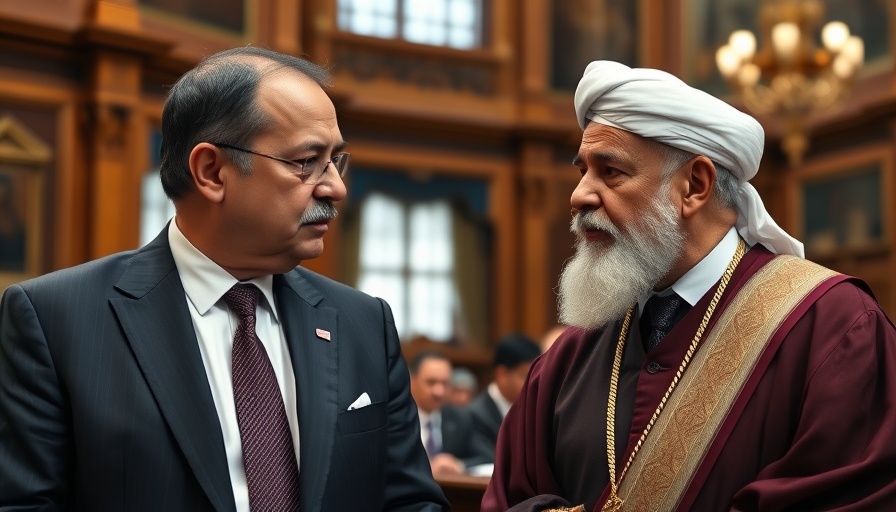
Cameroon Awaits Election Results: A Nation on Edge
As the anticipation builds in Cameroon regarding the presidential election results, a palpable tension hangs in the air. The country finds itself in a familiar predicament, fraught with political turmoil and uncertainty. Following a closely monitored vote, citizens are collectively awaiting the official announcement, expected from the Constitutional Council on October 26th.
In 'Cameroon Anticipates Presidential Election Results,' the discussion dives into the political tensions and public response to ongoing electoral challenges, sparking deeper analysis on our end.
The Unrest in Goua: A Cloud of Mistrust
Recent unrest in the northern city of Goua has stirred fears, as clashes have erupted between security forces and supporters of opposition candidate Isaachi Bakari. Following rumors that armed forces encircled Bakari's residence, the atmosphere transformed from post-election hope to disturbing violence. Observers note that such incidents might be politically motivated attempts to undermine Bakari's campaign.
The Struggle for a Transparent Electoral Process
The heart of the matter lies in Cameroon's struggle for transparency in its electoral process. The public’s trust is dwindling as citizens express frustration over the opaque methods employed in counting votes. While voters diligently recorded results from polling stations, the official tallying process remains shrouded in secrecy, leading to a proliferation of rumors and distrust among the electorate.
Independent Verification: Crowdsourcing Trust
In light of these circumstances, many citizens have taken the matter into their own hands, engaging in independent verification of election results. Some voters, having spent the night at polling stations, have shared signed result sheets on social media, creating an informal, crowdsourced tally that some perceive as more credible than official updates. This grassroots initiative reflects a significant shift in public sentiment, revealing a community unwilling to accept political narratives without evidence.
Lessons from 2018: A History of Discontent
The current situation eerily mirrors the 2018 presidential elections in Cameroon, where similar claims of electoral fraud and mismanagement dominated the landscape. The residents' heightened expectations for accountability clash with the reality of a reoccurring mistrust in the electoral body, as seen through their scepticism regarding the upcoming results.
Political Ramifications and Future Predictions
With heightened security measures and limitations on official information flow, unrest in the weeks leading up to results can be anticipated, especially if perceptions of intimidation persist among opposition parties. Political analysts fear that the current climate could pave the way for further discord, particularly if results deviate from public sentiment as showcased in localized evidence gathered by citizens.
Emotional Reactions: The Human Impact of Politics
For the citizens of Cameroon, the stakes are not merely ideological but extensional. Emotions are running high, with many experiencing anxiety and frustration over the uncertain political landscape. As the country stands divided, the competing narratives cultivated by the ruling party and opposition only deepen the chasm of discontent.
Conclusion: Taking Action for Transparency
The Cameroonian political landscape is at a critical juncture, one that demands transparency and accountability from its leaders. Given the lessons learned from prior elections, citizens must continue to advocate for a fair electoral process that resonates with their voices and hopes for change. Engaging in dialogue and fostering community actions around accountability may be pivotal in shaping a better future for the nation.
 Add Row
Add Row  Add
Add 


Write A Comment